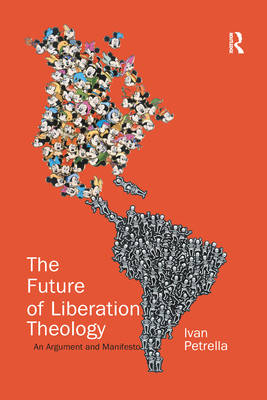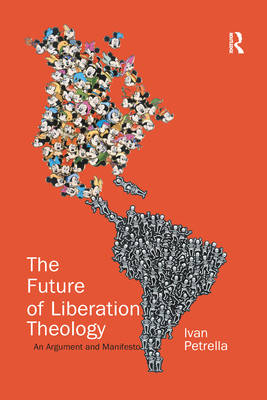
Door een staking bij bpost kan je online bestelling op dit moment iets langer onderweg zijn dan voorzien. Dringend iets nodig? Onze winkels ontvangen jou met open armen!
- Afhalen na 1 uur in een winkel met voorraad
- Gratis thuislevering in België vanaf € 30
- Ruim aanbod met 7 miljoen producten
Door een staking bij bpost kan je online bestelling op dit moment iets langer onderweg zijn dan voorzien. Dringend iets nodig? Onze winkels ontvangen jou met open armen!
- Afhalen na 1 uur in een winkel met voorraad
- Gratis thuislevering in België vanaf € 30
- Ruim aanbod met 7 miljoen producten
Zoeken
€ 83,95
+ 167 punten
Uitvoering
Omschrijving
The Future of Liberation Theology envisions a radical new direction for Latin American liberation theology. One of a new generation of Latin American theologians, Ivan Petrella shows that despite the current dominance of 'end of history' ideology, liberation theologians need not abandon their belief that the theological rereading of Christianity must be linked to the development of 'historical projects' - models of political and economic organization that would replace an unjust status quo. In the absence of historical projects, liberation theology currently finds itself unable to move beyond merely talking about liberation toward actually enacting it in society. Providing a bold new interpretation of the current state and potential future of liberation theology, Ivan Petrella brings together original research on the movement, with developments in political theory, critical legal theory and political economy to reconstruct liberation theology's understanding of theology, democracy and capitalism. The result is the recovery of historical projects, thus allowing liberation theologians to once again place the reality of liberation, and not just the promise, at the forefront of their task.
Specificaties
Betrokkenen
- Auteur(s):
- Uitgeverij:
Inhoud
- Aantal bladzijden:
- 192
- Taal:
- Engels
Eigenschappen
- Productcode (EAN):
- 9781032180151
- Verschijningsdatum:
- 30/09/2021
- Uitvoering:
- Paperback
- Formaat:
- Trade paperback (VS)
- Afmetingen:
- 156 mm x 234 mm
- Gewicht:
- 276 g

Alleen bij Standaard Boekhandel
+ 167 punten op je klantenkaart van Standaard Boekhandel
Beoordelingen
We publiceren alleen reviews die voldoen aan de voorwaarden voor reviews. Bekijk onze voorwaarden voor reviews.











